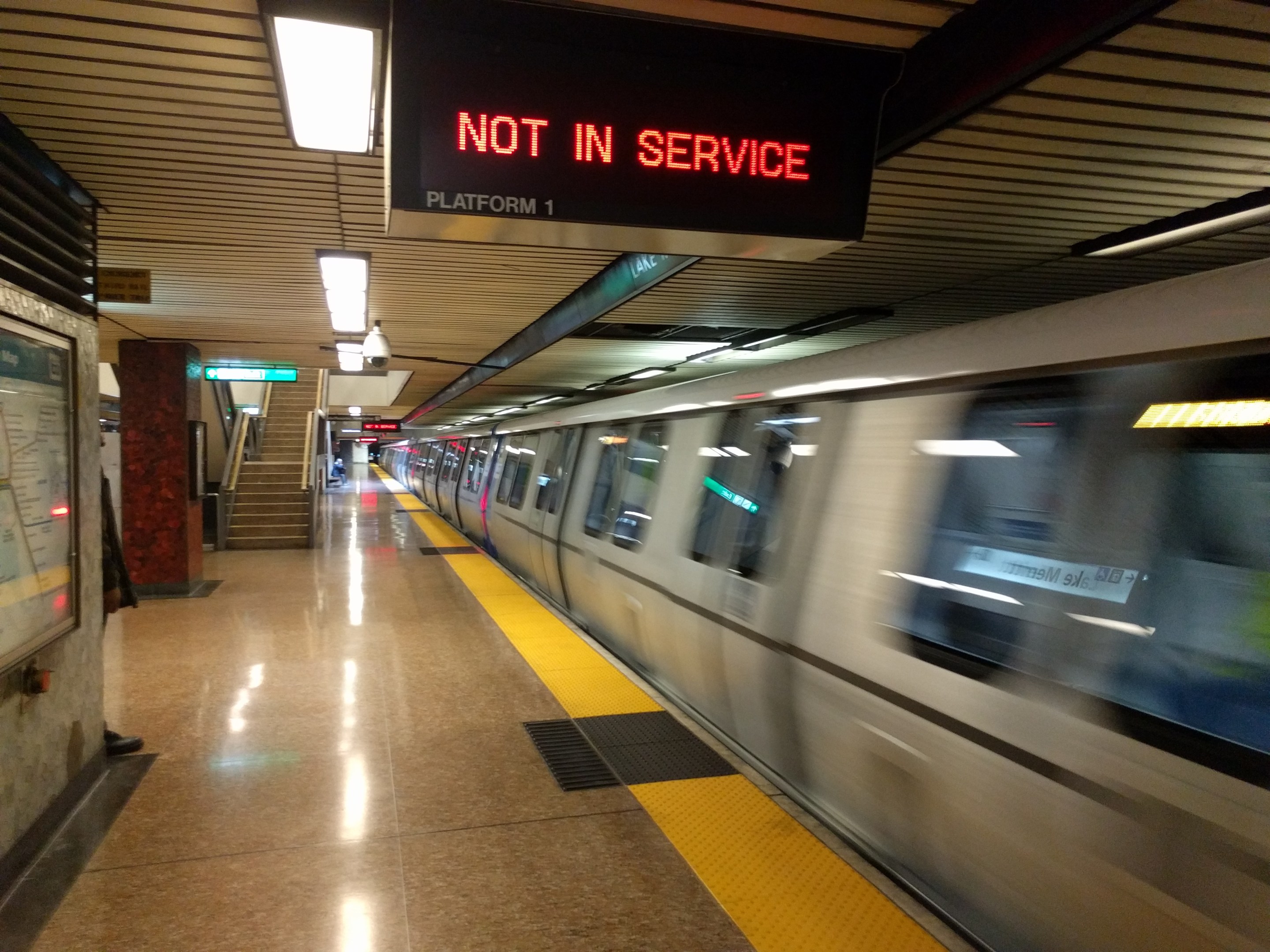Note: GJEL Accident Attorneys regularly sponsors coverage on Streetsblog San Francisco and Streetsblog California. Unless noted in the story, GJEL Accident Attorneys is not consulted for the content or editorial direction of the sponsored content.
Last week, leaders of the "Faster Bay Area" coalition that was working to place a transportation funding ballot measure on the November ballot announced that they were putting the efforts on ice, for now, reflecting the political realities of the COVID-19 world. The coalition has promised to work to get the measure on a future ballot measure.
Faster Bay Area was, in their words, is a "coalition is led by the Bay Area Council, Silicon Valley Leadership Group and SPUR in partnership with local environmental, equity and labor communities."
While November is a long way away, to qualify for the ballot "Faster Bay Area" would need a 2/3 vote of the legislature and the Governor's signature by the end of June. Given the government's understandable focus on the Coronavirus and the state's reaction, even if the campaign continued to push the measure it was unlikely to be anyone's focus in Sacramento.
But that's only half the story.
"Faster Bay Area" is a coalition that favored some kind of sales tax measure. Another group, "Voices for Public Transportation," (VPT) was hoping for a similarly expansive transit-funding program to cover increased operations and expansion, but based on "Multiple revenue sources that spread the burden across the wealthy, businesses, and residents." In other words, a corporate tax would be a big part of the mix.
"Up until two weeks ago our large tech companies were making huge amounts of money off the Bay Area but not investing back in the services. They need to pay into our public system," said Hayley Currier, Policy Advocacy Manager for TransForm, one of the 30-some advocacy groups pushing for VPT's approach. Other familiar groups supporting VPT's vision include Friends of Caltrain, the San Francisco Transit Riders, and Seamless Bay Area.
Currier points to the near-collapse of some transit agencies in the country, and BART being forced to end service at 9 p.m., as further evidence that current funding schemes, based on fares and sales taxes alone, just don't work. The way transit is funded now depends on the ups-and-downs of the economy to fund something that the VPTers consider a fundamental service supporting a basic human right: freedom of movement. Plus first responders, doctors, nurses, delivery people and others depend on transit to do essential work that saves lives and keeps society functioning.
Even before the pandemic became acute in the Bay Area, with its subsequent damage to the economy, there was evidence that Currier and VPT's alternate approach is gaining traction with the electorate.
Earlier in March, sales-tax transit funding measures in Marin/Sonoma and Contra Costa were "trounced" with neither coming even close to the two-thirds threshold needed to pass.
And in "Anatomy of a Successful Transit Measure," then Streetsblog USA editor Tanya Snyder noted that ballot measures are more likely to pass if they are funded through a real estate tax rather than a sales tax.
Snyder also noted that a measure has a higher chance of passing if people know the specifics for what they are voting for.
In this aspect, Faster Bay Area was sorely lacking. Despite drawing inspiration from the 2008 and 2016 transit sales tax victories in Los Angeles, Faster Bay Area has not shown the same zeal for producing project lists that would be definitely funded as Metro did in Los Angeles. This might be a shortcoming of VPT's approach too. "We don’t think a list-of-projects approach will get the best outcomes," said Currier. "We want a performance-oriented measure... in terms of reducing greenhouse gas emissions, serving low income people, people with disabilities, etc."
Either way, it seems COVID-19 has hit the pause button on these efforts, with the current push just to keep existing transit funded and running. That could be a good thing, if it gives VPT and Faster Bay Area an opportunity to reconcile their efforts and perhaps come up with a specific list of projects (based on VPT's rubric) that excites voters.
For now, although "This emergency has underlined the holes in the essential systems (including transit)," wrote Currier in a followup email to Streetsblog. "100 percent of the energy needs to be addressing the COVID-19 crisis and doing what we can to center our work towards community resilience and supporting vital services that are under extreme stress."





